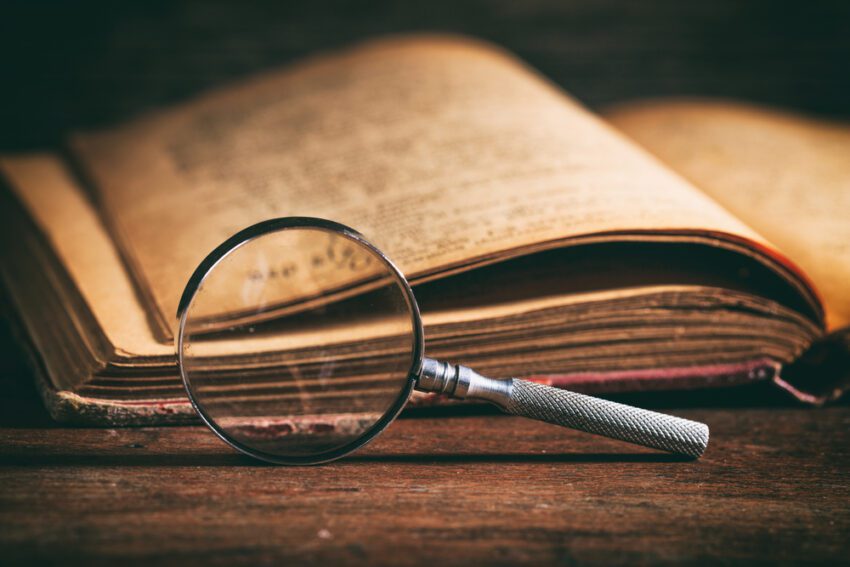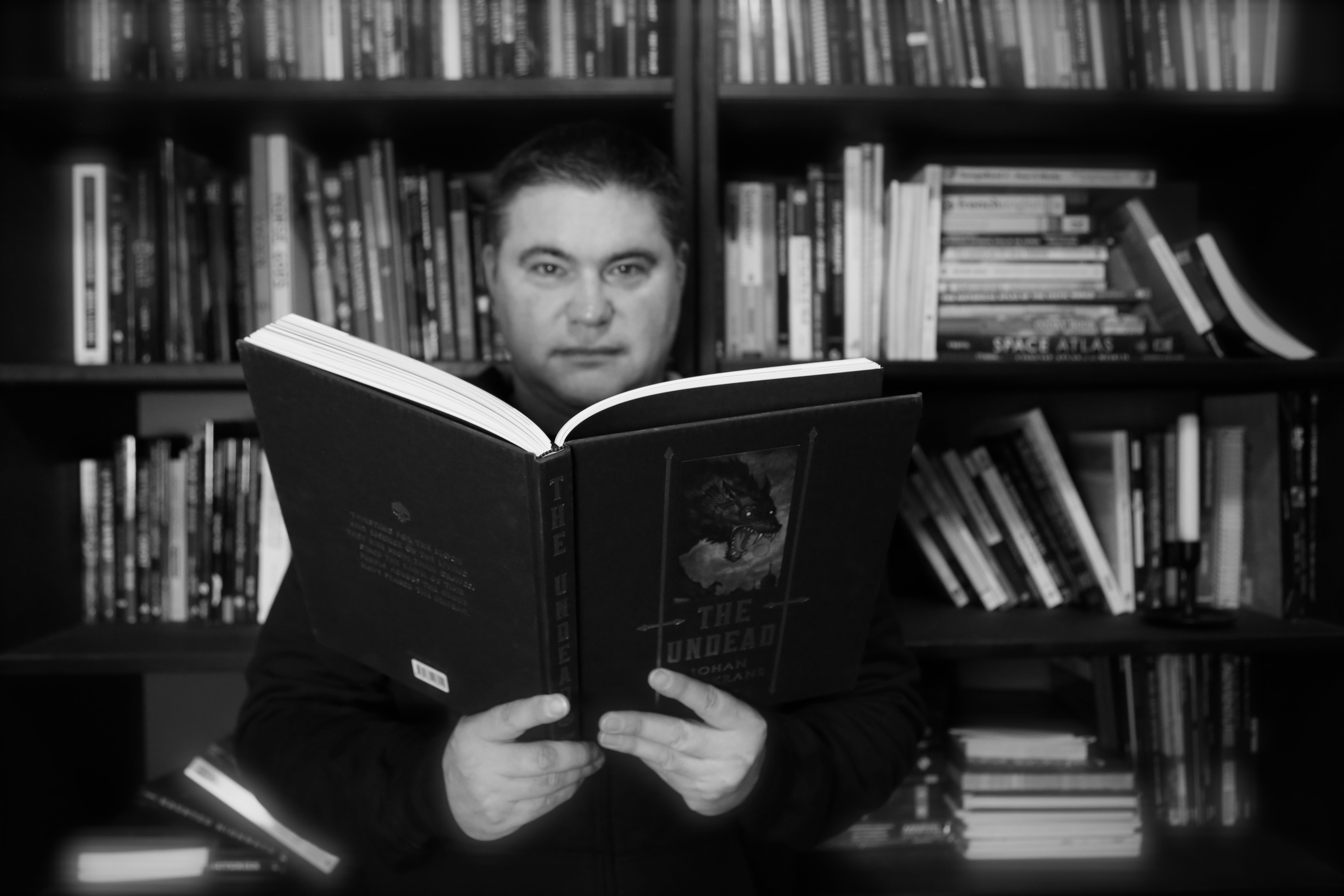
How To Use Dark History With Ghost Hunting
In this article, find what dark history means for paranormal research, how it’s the foundation of ghost hunting, what questions to ask, and which resources to use. Get the scoop after the jump.
Taking Liberties With A Well-Defined Term
You can’t really conduct a ghost hunt without having a dose of dark history in hand.
As ghost hunters and paranormal researchers, we’ve taken a play on the term, dark history, when we look at possible haunts. I decided to see what ChatGPT would find on the topic, and this is the definition it gave me:
Dark history meaning is a phrase that can have different interpretations depending on the context. Generally, it refers to a period or aspect of history that is characterized by ignorance, violence, oppression, or suffering. For example, the Dark Ages is a term used to describe the early Middle Ages in Europe, when there was a decline in culture, education, and civilization. Dark history can also be used to describe the hidden or shameful events of a person, group, or nation’s past.
A summary from powerthesaurus.org and etymonline.com
Now, that’s not what ghost hunters think about. We focus on the grimmest parts of the definition above, and make it something unique to our craft. For paranormal researchers, I’d say “dark history” is more like this:
Dark History refers to the tragic events associated with a haunted location, a cursed object or ghost. These events could be murders, disasters, suicides, battles, accidents or unexpected deaths. There must be suffering, violence and oppression associated with the subject. True crime, ghost stories, urban legends and lore are all starting points for your research.
Li’l ol’ me (Jacob Rice)
You Have To Be A Dark Historian To Be A Good Ghost Hunter

Overall, using dark history will narrow down potential haunted locations. If you find a tragic event directly related to a house, museum, factory, etc., then it could have a haunting. Tragic events should be something that resulted in someone’s death. The tragedies that release the biggest ‘charge’ include:
- Suicides (the method doesn’t matter as much as the intense emotions)
- Murders (stabbing, poisoning, drowning, choking, strangling, smothering or shooting)
- Lynching (an anger-fuelled mob kills a person without a trial)
- Arson (intentionally setting a fire)
- Battles (like Gettysburg)
- Accidents (heart attacks, falls, car crashes, train derailments, and plane crashes)
- Disasters (like earthquakes, floods and fires)
Really, any time a life ends too soon or by hate, anger or other negative emotions, a haunting may form.
Urban legends and ghost stories are an excellent source of leads. After all, they are based on a kernel of truth: You just need to figure out what that kernel is. Most of the time, it deals with a person, place and date. And if you have a name and a date, the haunted suspect list opens up.
How To Use Dark History As A Ghost Hunter
My ghost-hunting style leans heavily on the historical record as well as the urban legends and lore associated with a haunted place or object. I have no problem sitting in front of the computer for hours doing online research, but that’s not good enough on its own. Sometimes, you have go visit the haunt and interview the people that live or work there.
If you need some advice to get started, I’d say to think like an investigative journalist. At a minimum, collect the following information about the people associated with a haunted location or object:
- Who lived there?
- How long did they live there?
- Who died at the haunt?
- How did they die?
- How much did they love or hate the location?
- What are the tragedies at the location?
- Is the location associated with a lot of death?
- Did anyone have a prized possession?
- Make copies of any records you find
Along the way, you’ll probably find secrets held by your research subject, and who doesn’t love a good mystery?
Exposing Secrets & Solving Mysteries
These secrets could mean many different things, but most come down to understanding why the ghost remains behind. Is there a final message to deliver? Does it need something from its past to be at rest? Does the ghost even want to move on (you’d be surprised by how many are just fine-and-dandy with their daily haunting routine)?
Most of these questions can be answered by dark history and a well-conducted EVP session or engagement session. Your research will dictate the questions to ask and to verify the ghost’s responses.
Begin rant: And don’t forget to write up your findings and publish it. I hate it when ghost hunters don’t publish their findings. That’s what researchers do: They publish to advance the field. End rant.
The One Thing We Overlook In Our Research
Dark history is a grim subject. We’re not exactly looking at the happiest times in people’s lives, and that’s the part we forget about. Positive emotions can be just as powerful as negative ones, and they can charge the location with enough paranormal juice to create a haunt or haunted object.
When you do your research, don’t forget about the positive events at the haunt. There really are happy haunted places, too.
Resources To Use

When you go online, read each article or information source with skepticism. Also, have patience. Many records were handwritten and have errors in spelling. Dates can be off by a year or three. Sometimes, you just get an opinion by the recording agent (looking at you census records).
One of the best records to obtain is death certificates. They may great trigger objects. When you use the resources below, be ready to search within them with the names, dates and places you found in your research. Those are the keys to unlocking ghostly secrets.
These are the resources I use when doing dark history research:
- DiedInHouse.com (use for names and dates)
- Ancestry.com (use names and dates to build a profile of the suspected ghost)
- Fold3.com (use to find military records)
- Newspapers.com (use for finding details surrounding the life and death of a person or place)
- NewspaperArchive.com (use for finding details surround the life and death of a person or place)
- FindAGrave.com (use if you want to visit and conduct an EVP session with the ghost’s earthly anchor)
- Online archives for your town/state/province (use to understand historical context at the person’s time of death)
- Physical archives (use to understand historical context)
- Local museums (use more to understand what life was like during time period and artifacts)
- Libraries (use to access all sorts of records: librarians can find anything)
- Google Scholar (use to find previous research on a subject)
- JSTOR.org (use to find previous research on a subject)
Note: Jake pays for his own subscriptions with his own money, so there’s no expectation to endorse a website from the owner.
Discover more from Ghostly Activities
Subscribe to get the latest posts sent to your email.
